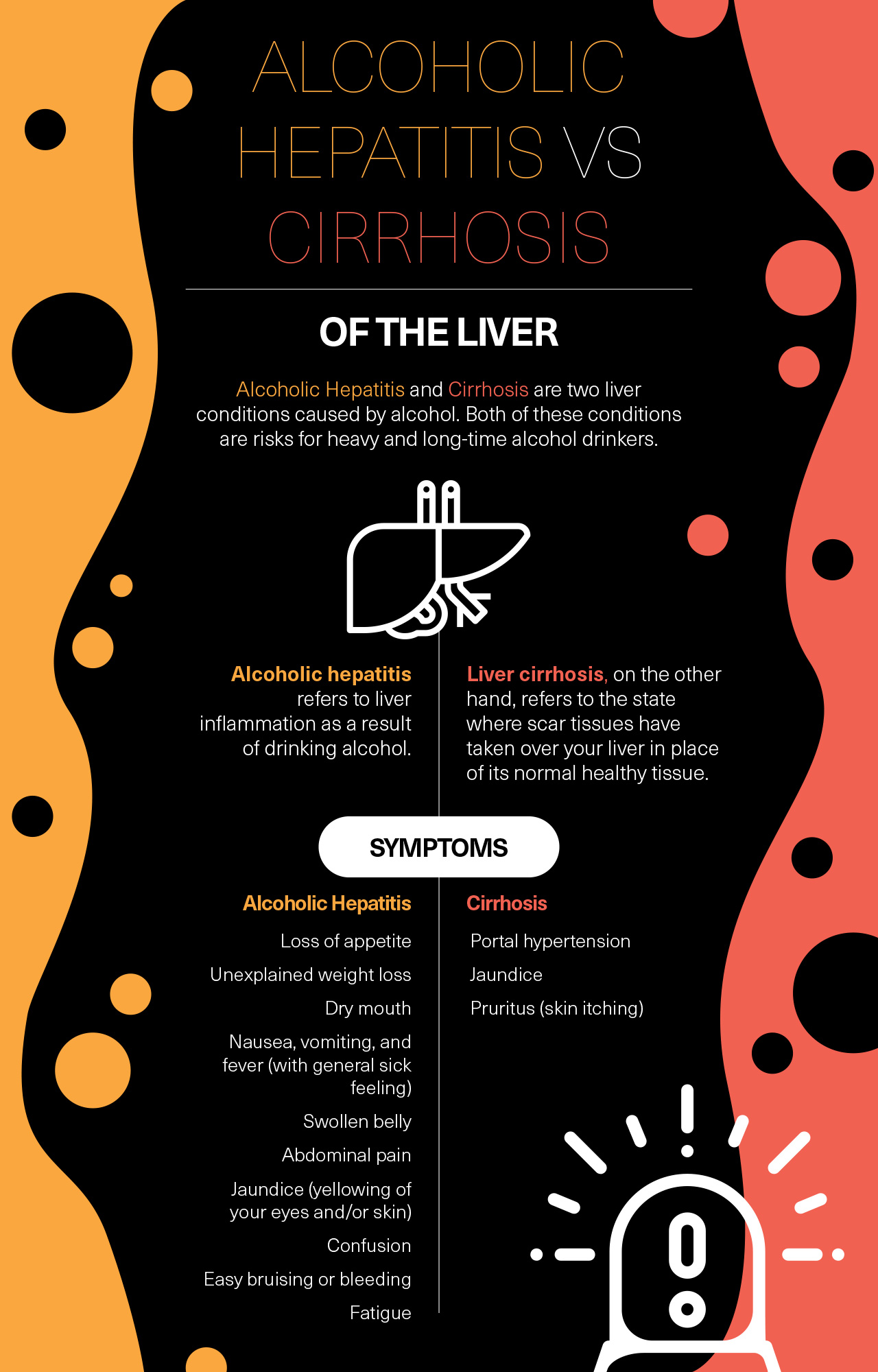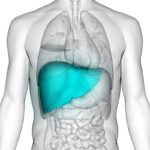Your liver is the largest of all the internal organs in your body. And it is not just large for nothing. Its job is important. If your liver shuts down, death is inevitable. Your liver is the organ that filters your blood of all toxins. It breaks down dietary proteins into amino acids for their various important functions. It also creates bile that helps your body to absorb fats. But then, a heavy intake of alcohol for the long-term can damage this vital organ. In this article, we will focus on two of the liver conditions that alcohol causes: alcoholic hepatitis vs cirrhosis of the liver.
Alcoholic Hepatitis vs Cirrhosis of the Liver
Alcoholic hepatitis refers to liver inflammation as a result of drinking alcohol. Liver cirrhosis, on the other hand, refers to the state where scar tissues have taken over your liver in place of its normal healthy tissue. Both of these conditions are risks for heavy and long-time alcohol drinkers.
The conditions can even occur in those who only drink moderately. It does not matter whether you are getting drunk or not. If you are drinking alcohol, you stand the risk of developing these conditions. The more you drink and the longer you have sustained that habit, the higher your risk.
Alcoholic Hepatitis – Understanding the Cause
Alcoholic hepatitis refers to inflammation in the liver. It develops due to too much alcohol consumption and causes damage to the liver. What is not clear to experts is how alcohol causes this damage, as well as why some heavy drinkers get away without this damage.
To understand the development of alcohol-related liver damage, here is an idea of how the process occurs:
- Our body’s normal breakdown process for alcohol yields certain toxic chemicals. These chemicals are harmful and highly toxic.
- These toxic chemicals are the culprits that trigger liver inflammation.
- Inflammation (especially chronic) damages your liver cells.
- As this damage progresses and your body attempts to repair the damage, scar tissues begin to replace your normal liver tissue. This, in turn, interferes with normal liver function.
- Scarring is reversible, but it may become irreversible after a long period (usually decades). Irreversible scarring is what experts call cirrhosis. It is the end-stage of alcohol-related liver disease.
However, a few other factors may contribute to alcohol-related hepatitis. For instance, if you already have any other form of hepatitis, you should not drink at all. Even moderate drinking can worsen your situation.
Malnutrition is another major factor. Lack of adequate nutrients may contribute to liver damage.
Only about one-third of those who drink alcohol heavily would end up having alcoholic hepatitis. Experts say about 10-20% of heavy alcohol drinkers will eventually develop it.
Symptoms
Alcoholic hepatitis has varying symptoms. The symptoms you will feel and to what degree would depend on how badly your liver is damaged. If your case is mild, you may not even feel any symptoms at all.
But then, as the damage progresses, you may start noticing a few symptoms. These include:
- Appetite changes
- Weight loss without trying
- Dry mouth
- Nausea, vomiting, and fever (with general sick feeling)
- Swelling/pain in your belly
- Jaundice (yellowing of your eyes and/or skin)
- Changes affecting the state of your mental health, such as confusion
- Easy bruising or bleeding
- Fatigue
You should visit the doctor if you notice these symptoms.
If you do not treat hepatitis properly, it may lead to cirrhosis.
What Causes Cirrhosis?
Cirrhosis is the end-stage of a dangerous progression. This progression may begin with fatty liver disease in some cases. It then progresses to hepatitis. And finally, it may cause alcoholic cirrhosis.
But a person may develop alcoholic cirrhosis without having hepatitis first. More so, genetic factors, other liver disorders or infections, malnutrition, and being overweight may contribute to alcoholic hepatitis. These may or may not proceed to become liver cirrhosis.
What Are The Symptoms?
Cirrhosis symptoms usually occur when the damage is far gone. It is because your body can compensate for liver function when some parts of it are damaged. But when the damage becomes widespread, the body can no longer hold forth. This is when symptoms show up.
These symptoms include:
- Portal hypertension
- Jaundice
- Pruritus (skin itching)
If you have complaints that point in the direction of hepatitis, what your doctor wants to be sure of is whether or not you overuse alcohol. So they will ask about your alcohol consumption.
Aside from that, they will ask questions about your past health history and perform a routine physical exam. Your doctor may also order some tests to confirm the diagnosis.
When it comes to cirrhosis, doctors are always very careful. They will first rule out every other possible condition that may cause liver problems before they confirm the diagnosis of cirrhosis. One sure way to do so is to carry out a liver biopsy.
Liver biopsies show the state of the liver. This test will detect the type of disease affecting the liver and how severe it has become. As such, doctors can use it to confirm either alcoholic hepatitis or cirrhosis. However, the procedure is invasive and comes with certain risks.
Treatment Measures
The most important measure in treating either alcoholic hepatitis or liver cirrhosis is to quit consuming alcohol. Neither of these conditions has a cure. The best you can do is to halt the progression and manage the symptoms.
Alcoholic hepatitis vs Cirrhosis (alcohol-induced) are quite different but they share a common origin. However, both hepatitis and cirrhosis can be caused by other aggressors. For the sake of your health, it is better to avoid alcohol. And even if you drink, do so in moderation.























